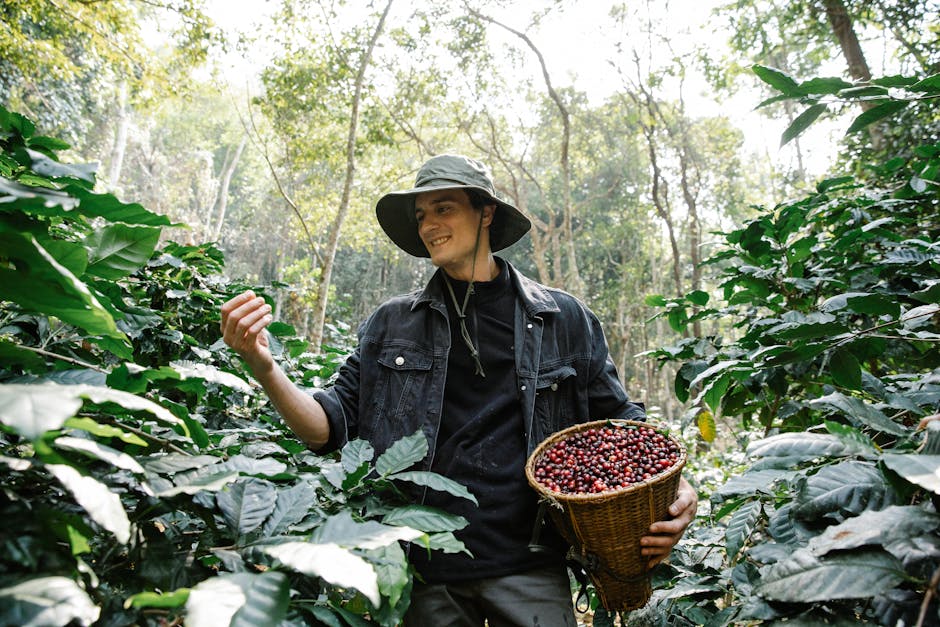
How Coffee Bean Varieties Impact the Sustainability of Brewing
With a sip of coffee, the tale of sustainability and flavor unfolds—rooted deep in the bean. To understand the ecosystem of coffee, we delve into the intricate relationship between different bean varieties and the sustainable practices in brewing. Join us as we explore how the choice of beans goes beyond just taste, shaping the very essence of sustainability in every cup.
The Influence of Arabica on Sustainable Brewing Practices
Arabica, often hailed as the king of coffee beans, plays a pivotal role in shaping sustainable brewing practices. Known for its nuanced flavors and aromatic qualities, Arabica thrives at higher altitudes, requiring specific conditions for cultivation. This delicate bean not only contributes to exquisite taste profiles but also demands meticulous care throughout the farming and roasting processes. Its presence in sustainable brewing highlights the commitment to quality and environmentally friendly practices.
In the world of specialty coffee, Arabica reigns supreme, setting standards for sustainability and ethical sourcing. Coffee enthusiasts savor the varied notes of Arabica beans, recognizing the impact of its cultivation on ecosystems and communities. From the mountain slopes to the coffee cup, Arabica weaves a tale of sustainability, urging brewers to uphold the principles of eco-consciousness and quality craftsmanship.
The allure of Arabica lies not only in its sensory delights but also in its ability to drive positive change within the coffee industry. By prioritizing sustainable Arabica cultivation, brewers embrace a harmonious relationship with nature, honoring the origins of this exceptional bean that continues to shape the landscape of sustainable coffee practices.
Exploring the Environmental Impact of Robusta Beans in Coffee Production
Contrasting with the delicate Arabica, Robusta beans bring a robust flavor profile and a unique set of characteristics to the table. Thriving in lower altitudes and resilient against pests, Robusta beans offer a distinct caffeine kick, popular in espresso blends around the world. However, their cultivation raises environmental questions due to differing farming methods and ecological implications.
The environmental impact of Robusta coffee production extends from farming practices to biodiversity conservation. As the demand for Robusta beans grows, balancing productivity with sustainability becomes paramount. Ethical sourcing practices and eco-friendly initiatives play a crucial role in mitigating the ecological footprint of Robusta cultivation, ensuring a harmonious coexistence between coffee farming and the environment.
Despite the environmental challenges posed by Robusta cultivation, innovative approaches such as agroforestry and organic farming offer sustainable solutions. Coffee enthusiasts and industry players alike scrutinize the balance between flavor preferences and environmental responsibilities, underscoring the importance of conscious decision-making in supporting the sustainability of Robusta coffee production.
Balancing Ethics and Flavor: The Role of Specialty Coffee in Sustainability
Specialty coffee emerges as a beacon of sustainability, intertwining ethical practices with unparalleled flavors. From single-origin microlots to meticulously curated blends, specialty coffee showcases the craftsmanship and dedication of coffee producers worldwide. With a focus on quality, traceability, and community empowerment, specialty coffee sets a high standard for sustainable sourcing and brewing.
The ethical dimensions of specialty coffee extend beyond bean cultivation, encompassing fair trade principles, transparent supply chains, and support for coffee-growing communities. By prioritizing direct relationships with farmers and promoting equitable compensation, the specialty coffee industry champions social responsibility and environmental stewardship. Each sip of specialty coffee symbolizes a commitment to sustainability and ethical consumption.
As consumers embrace the specialty coffee movement, awareness of the link between ethics and flavor grows stronger. The journey of specialty coffee—from farm to cup—reflects a profound connection between conscious choices and sensory experiences. By celebrating the diversity of coffee bean varieties and their impact on sustainability, specialty coffee enthusiasts pave the way for a more vibrant, responsible coffee culture.
In the intricate dance of sustainability and coffee bean varieties, a profound impact is felt on the brewing world. As we sip our coffee, let us remember the journey from bean to cup, where sustainability and flavor intertwine, guided by the diverse characteristics of each coffee bean variety.

